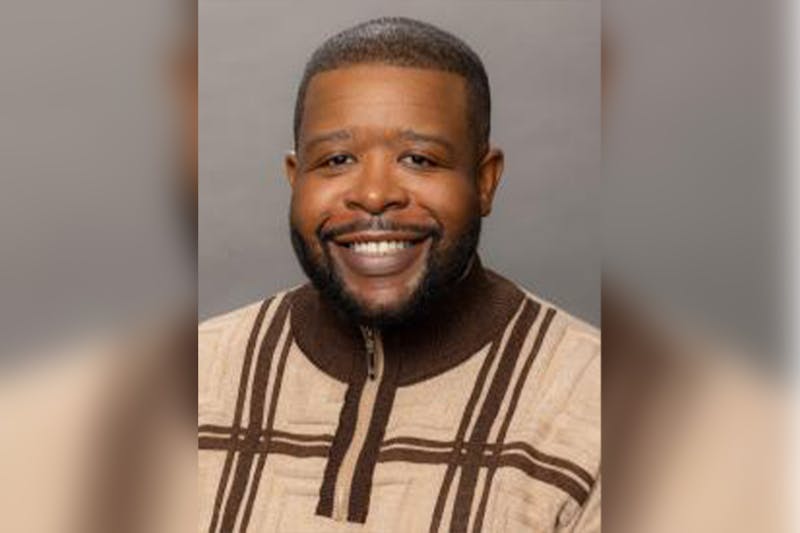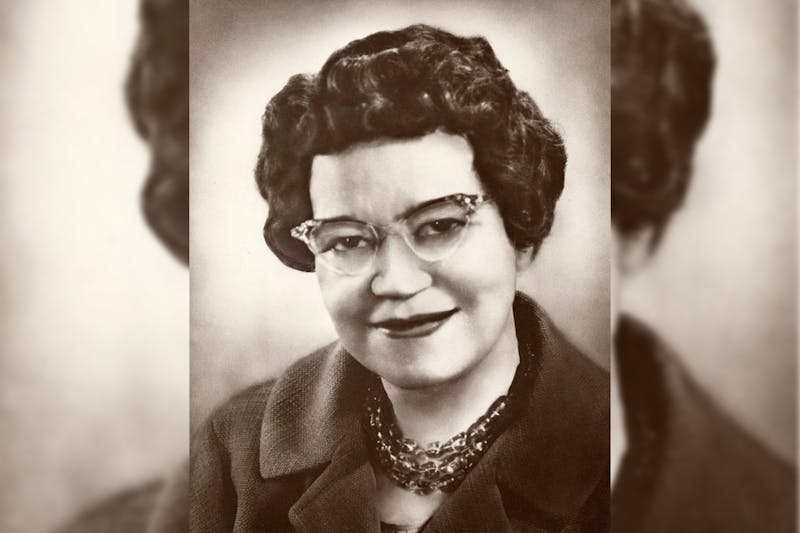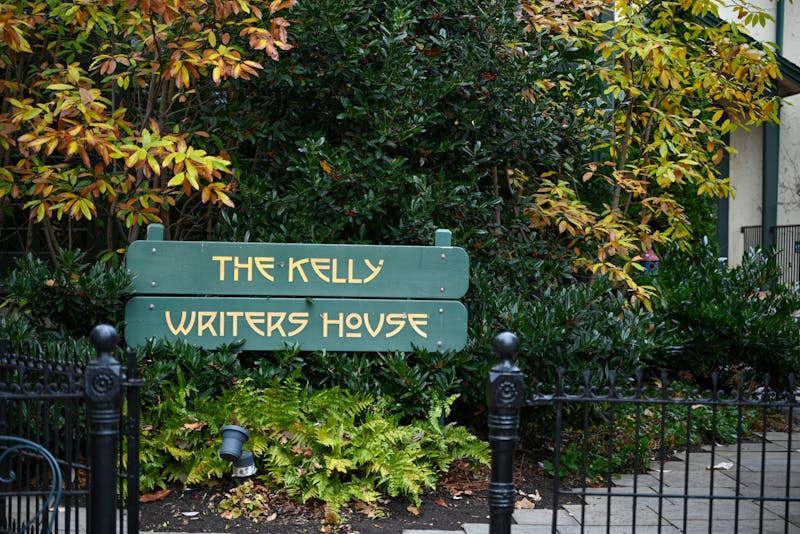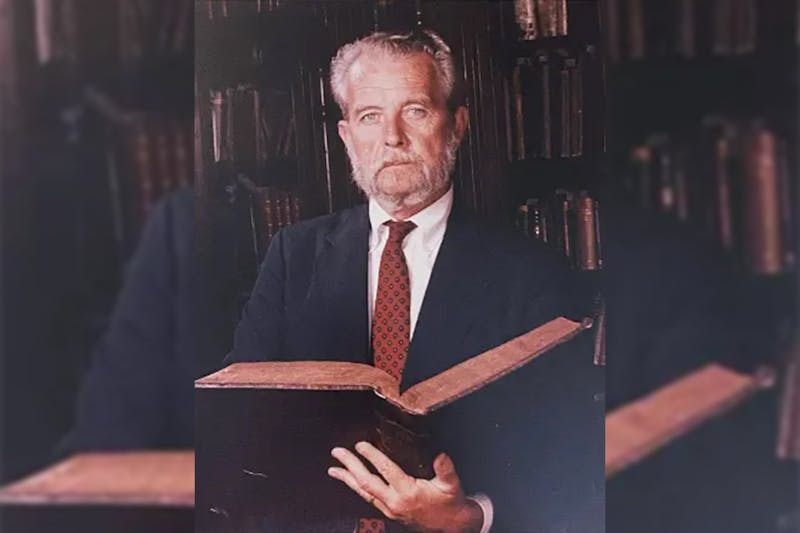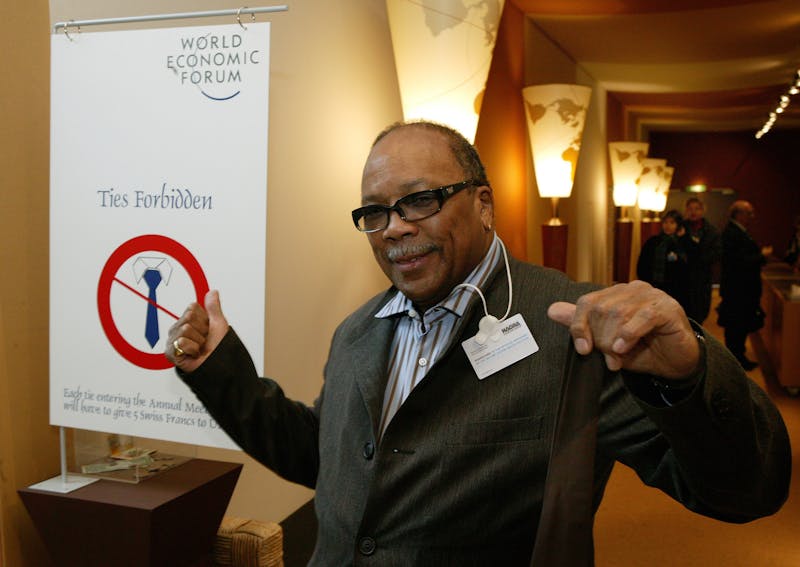
Orlando Patterson, a professor of sociology at Harvard University, speaks at the 24th Annual Martin Luther King Jr. Lecture in Social Justice on Jan. 21.
Credit: Sanjana JuvvadiPenn’s Center for Africana Studies honored historian and Harvard sociology professor Orlando Patterson with the Martin Luther King Jr. Social Justice Award at the Zellerbach Theatre on Jan. 21.
Patterson received the 24th annual award for his extensive research into Jamaican slavery. Awarded as a collaboration between the Center for Africana Studies and the Annenberg School for Communication, the recognition highlights an individual with “influential scholarship and commitment to social justice.”
Prior to receiving the award, Patterson reflected on his studies in a two-hour lecture that included topics of cultural genocide and social death, a term he pioneered to describe the suffocating nature of slavery and how Jamaicans lost heritage and social connection through the practice. Accompanied by a digital simulation of his own design, Patterson drew the conclusion that the aforementioned concept may have led to modern Jamaican culture and its global impact.
“The enslaved did not passively accept their social death,” Patterson said in the lecture. “They constructed from the fragments of their decimated African past and from elements of the slaveholder culture that they could appropriate patterns of life that were to have profound effects on the cultures of their oppressors in Jamaica, in spite of its small size.”
Africana Studies professor Michael Hanchard followed the lecture with a discussion of Patterson’s intellectual journey, his upcoming novel, and further interpretations of social death in slavery.
Among the attendees was Wharton Coalition for Equity and Opportunity Managing Director Fareeda Griffith, who received a Ph.D. in sociology from Penn in 2009. As someone who also attended the event while she was a student, Griffith highlighted the importance of spreading King’s legacy.
“I think [King’s] work, social justice, the fight for social justice is so important,” Griffith said. “As we think about how we can contribute, I think making sure that students can hear this work — other individuals in the community, as well as faculty and staff — as it relates to kind of picking up and doing the work to continue the fight for social justice, it’s really important to have these type of events.”
The event appeared in the lineup for Penn’s annual Martin Luther King Jr. Symposium, running from Martin Luther King Jr. Day on Jan. 20 to Feb. 7. Overseen by AARC, the symposium has recognized King’s social justice and influence for 30 years through various service and community events.
Events on this year’s roster include new additions, such as the “MLK 101” lecture to discuss King’s life and legacy, as well as recurring ceremonies such as a candlelight vigil held by the Alpha Phi Alpha fraternity and Alpha Kappa Alpha Sorority. The longest of these events includes the annual Day of Service, which attracted 350 attendees to pick up trash, run a free dog and cat vaccination clinic, donate toiletries to shelters, create no-sew blankets with cards for senior citizens, teach elementary-age children about King, and inform high schoolers about the college process, among other efforts.
AARC Director Valerie Dorsey Allen oversaw the symposium, which she has been organizing since April 2024. She emphasized the educational aspect of the events and the hope to preserve King’s legacy.
“There’s at least a generation of people, maybe two, who don’t have firsthand knowledge and experience about Dr. King and about the values he espoused and the things that he did,” Allen said. “It’s important for the symposium because it shines a light on what has been done in the past and what we need to do as we move forward to the future.”
This year marked the third time in American history that Martin Luther King Jr. Day coincided with the presidential inauguration, having previously occurred during the inauguration of former presidents’ Bill Clinton and Barack Obama in 1997 and 2013 respectively. Although the ceremony took up the attention of many, the lecture also saw higher attendance.
“I think that what [the inauguration] did was it made more people come out,” Allen said. “And that is critically important as the United States goes through some of the changes that it is going through and probably about to go through.”
The Daily Pennsylvanian is an independent, student-run newspaper. Please consider making a donation to support the coverage that shapes the University. Your generosity ensures a future of strong journalism at Penn.
Donate




